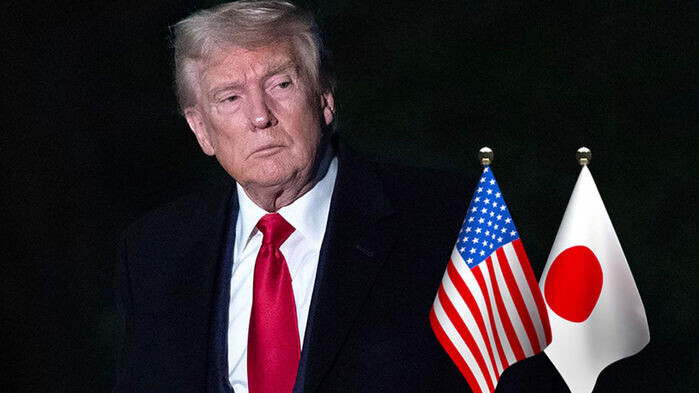
As South Korea prepares for a crucial visit to the United States next week by its Ministers of Economy and Finance, and Trade, Industry and Energy, the ongoing dialogue between the United States and Japan is drawing significant attention in Seoul. With similar economic structures, marked by substantial trade surpluses with the US, and shared geopolitical circumstances, the trajectory of US-Japan negotiations under the former administration in Washington holds vital clues for South Korea's own engagement with its key ally.
Experts emphasize the need for South Korea to closely monitor several aspects of the US-Japan discussions, including the speed at which agreements are sought, the specific demands put forth by the US, and particularly the treatment of sectoral tariffs.
According to a report in Japan's Asahi Shimbun on April 17th, the former US leader has reportedly presented Japan with three primary demands: a significant increase in Japan's financial contribution to the cost of stationing US forces in Japan, an expansion of US automobile sales within the Japanese market, and a reduction in the bilateral trade deficit favoring Japan. This suggests a potential for comprehensive, "package deal" negotiations encompassing trade, tariffs, and security matters.
The Japanese case offers several pertinent points of reference for South Korea. One crucial aspect is the anticipated pace of negotiations. Many analysts predict that Japan will not be inclined to rush towards a quick resolution.
Kim Yang-hee, a professor of economics and finance at Daegu University, noted, "The current South Korean government, under the acting presidential authority of Han Duck-soo, is already discussing potential concessions. We must pay close attention to how Japan responds if the former US administration pushes for a swift agreement."
Kim Hyuk-joong, a research fellow at the Korea Institute for International Economic Policy (KIEP), echoed this sentiment, suggesting Japan might adopt a more patient approach. "The US is scheduled to release its first-quarter GDP figures on April 30th, with some forecasts predicting a contraction as severe as -3%," Kim stated. "A weakening economic outlook and subsequent negative public opinion could provide Japan with leverage, creating a window for the US to potentially soften its demands. Japan will likely want to observe this situation."
The "package deal" approach being explored between the US and Japan could also provide insights into the demands Washington might present to Seoul in future discussions.
Lee Tae-ho, a former Second Vice Minister of Foreign Affairs and current advisor at the law firm Gwangjang, commented, "While US industry concerns regarding non-tariff barriers in various countries are widely known, the specific demands of the US government often remain undisclosed. The negotiations with Japan will likely shed some light on the concrete areas of focus for the US."
The discussions surrounding the cost-sharing of US Forces Japan (USFJ) are also of particular interest. "Following a phone call with Acting President Han, the former US President mentioned 'one-stop shopping,' suggesting that defense burden-sharing could be part of a comprehensive package. Therefore, monitoring the trajectory of US-Japan defense cost negotiations is crucial," Lee Tae-ho added.
Another significant point of contention is whether the US will include sectoral tariffs in the negotiation agenda. The Japanese government reportedly aims to secure an exemption from tariffs on automobiles, viewing the existing sectoral tariffs as a more significant impediment than reciprocal tariffs. Japan's auto industry is a cornerstone of its export economy, making these tariffs particularly impactful.
However, the prevailing indication is that the former US administration might prioritize reciprocal tariffs in its negotiation strategy. Jang Sang-sik, head of the International Trade and 통상 Research Institute at the Korea International Trade Association (KITA), pointed out, "Both Japan and South Korea have key export items that are subject to sectoral tariffs rather than broad reciprocal tariffs. Observing whether there is room to reduce or eliminate these sectoral tariffs through the US-Japan negotiations will be a critical point for South Korea."
The differing priorities regarding the type of tariffs under discussion highlight the complexities South Korea might face. While broad reciprocal tariffs could impact a wider range of goods, targeted sectoral tariffs on key industries like automobiles and steel can have a more concentrated and potentially severe effect on export competitiveness.
Furthermore, the intertwining of trade and security issues in the US-Japan dialogue underscores a potential shift in Washington's approach to international economic negotiations. Linking defense burden-sharing to trade concessions could set a precedent for future discussions with allies, including South Korea, which also hosts a significant contingent of US forces.
South Korea's upcoming ministerial visit to the US will be a critical opportunity to gauge the evolving dynamics of US trade policy and to understand the potential implications of the US-Japan engagements. The lessons learned from the US-Japan talks, particularly concerning the negotiation speed, specific US demands, and the treatment of sectoral tariffs, will be invaluable for Seoul as it navigates its own economic and security relationship with Washington in a potentially shifting global landscape. The South Korean government will need to carefully analyze the outcomes of the US-Japan discussions to formulate effective strategies that safeguard its economic interests while maintaining a robust security alliance.
[Copyright (c) Global Economic Times. All Rights Reserved.]



























